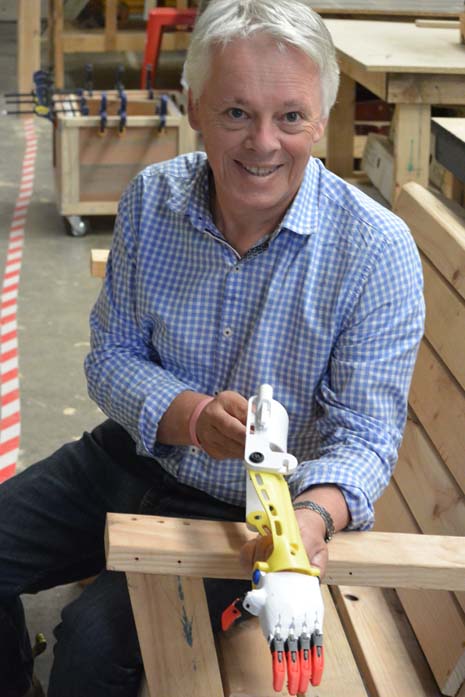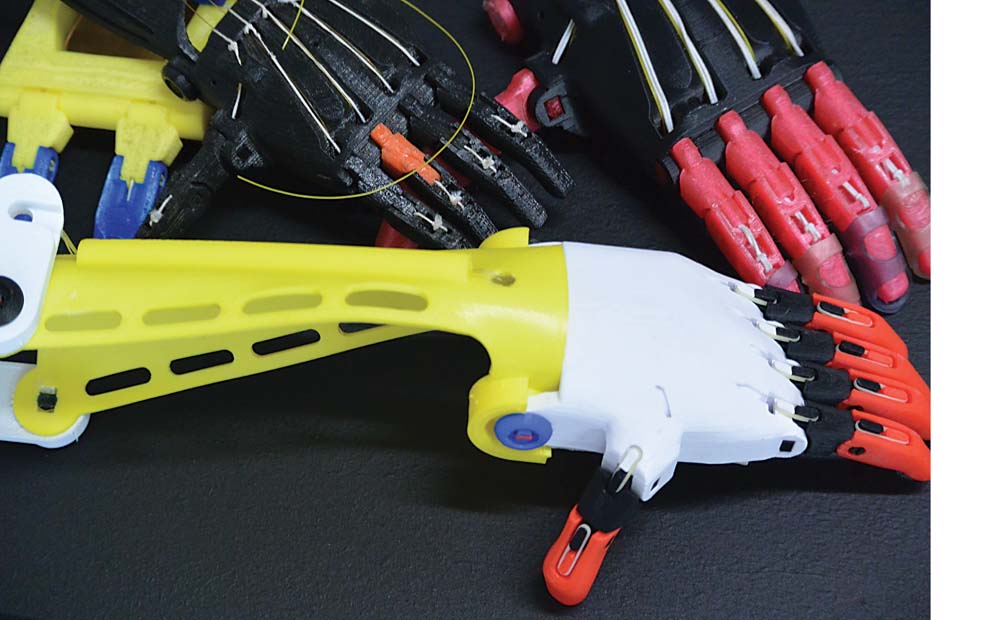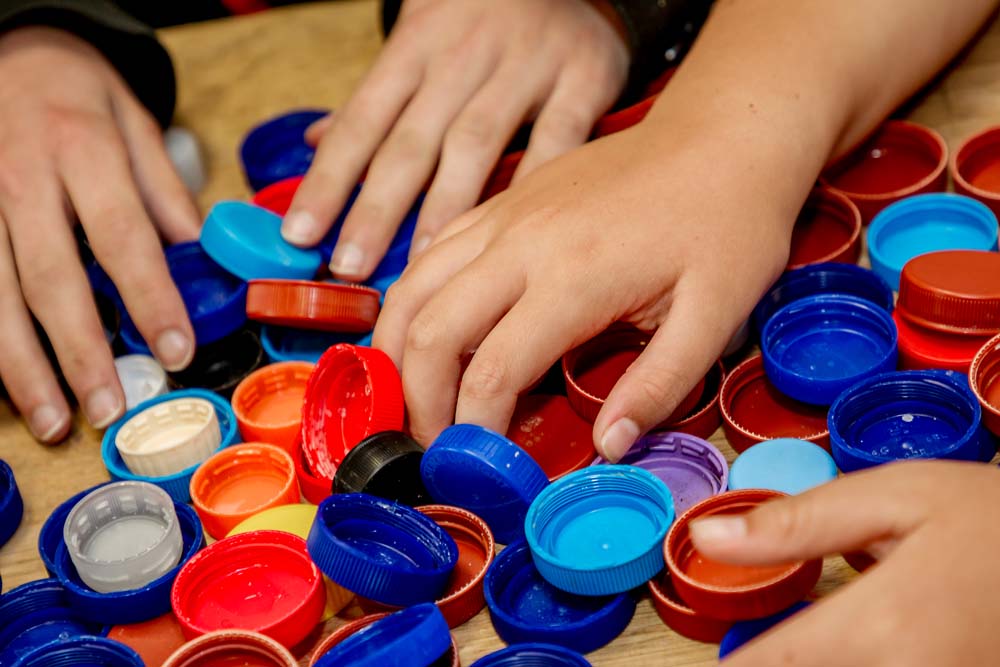
Amazing things are happening behind the mirrored façade of an otherwise nondescript building in Seaford’s industrial precinct. “Envision” is a not-for-profit charity organisation dedicated to helping people on a local, national and international level. On the other side of the mirror, inside their humble workshops, experimental engineering and creative building is going on upcycling throwaway materials and repurposing them into life-changing products.
Even better, people who are often marginalised in the traditional workplace are making them. Sean Teer, Manager at Envision doesn’t believe anyone is unemployable. He has dedicated his life to helping people find gainful employment. Envision, amongst other things, is a jobactive, aka work for the dole site. They teach hands-on skills and provide interesting challenges to people who don’t fit the typical employee model, such as the long-term unemployed or people with disabilities.
At Envision anyone who is keen to work can learn practical and social skills vital to a working environment. There is a carpentry workshop where recycled timber is creatively repurposed into projects that help the elderly, people with mental illness and underprivileged communities locally and nationally. At the same, time some exciting work experimenting with recycled plastics is making a worldwide ripple.
In early 2018 at Envision’s Werribee office, Joe Ferlazzo started his Plastic Fantastic Project focused on recycling plastics into prosthetic hands/arms. He found out about this idea through an organisation in the United States founded by Jen Owen called e-NABLE. She received funding from Microsoft to establish a library of design for 3D printers. e-NABLE is an information hub that makes their prosthetic designs available free of charge to the worldwide online community.
Ferlazzo focused his efforts on plastic bottle caps because they were literally falling through the cracks in recycling facilities and ending up in landfills, on beaches or in the oceans. In fact, they are fifth on the list of top 10 plastic rubbish items most frequently found on beaches, in oceans and even worse, ingested by the fish, birds and marine mammals that live there.
Instead, Envision has partnered with schools and community groups such as Rotary to collect plastic bottle caps to make them into prosthetic hands/arms. The caps are shredded, melted and extruded into filaments using a machine designed and made by Ferlazzo. The filament is loaded into 3D printers and used to create the parts, which are assembled at Envision and sent to children overseas. The recipients are children in India born without fingers or hands or amputees in war-torn countries such as Syria. These simple prosthetics help children do things most people take for granted, such as, holding a cup or picking something up.
In Seaford, the Envision team is experimenting with different kinds of recycled plastics, working out the best combinations for optimum flexibility, rigidity or strength. A volunteer engineer explores all kinds of materials, such as, fishing wire, dental rubber bands, jewellery wire or anything else that could improve movement and design. Each prosthetic is individually made to meet the exact requirements of the child receiving it. They are fitted by organisations on the ground overseas, in medical facilities or community environments.
It takes hundreds of bottle caps to make a single prosthetic. A lot of trial and error is involved, as no two are alike. Many volunteers are needed to help with engineering, fundraising, bottle cap collection and 3D printing. Local schools have come on board to help out as they have both the resources and enthusiasm for the project. Envision gives schools the filament and production directions. Students then make the parts and Envision assembles them, but potentially, with some training, students could make the entire product. Many schools on the Mornington Peninsula have 3D printers and, as such, are well placed to help with the Envision Hands project.
Students at Balcombe Grammar School in Mt Martha are joining forces with the Envision team. Because of their strong focus on tackling waste, the staff and students embraced the opportunity to support such an incredible cause, turning rubbish into something meaningful. Heading the team is Year 12 student, Kieron Parmar –Poynter, who believes that embedding sustainability into the curriculum is critical to shaping the global citizens of the future. He states: “By fostering a sustainable approach in all our endeavours, we can encourage and inspire others to follow our lead.”
Envision has many pro-social projects on the go and always needs help. Everything they make, restore or refurbish from used computers to discarded bicycles are recycled back into the community or donated overseas. These projects enrich the lives of the people both giving and receiving. New skills are learned, new ideas are exchanged, new friendships are forged and people who felt they had no place to belong have found new meaning and purpose in their lives. Envision is a winning enterprise. Get on board.
Plastic bottle tops for donation can be dropped off at Eastbourne Primary School in Rosebud, at local Bendigo Bank branches and at Raw Travel in Mornington.




